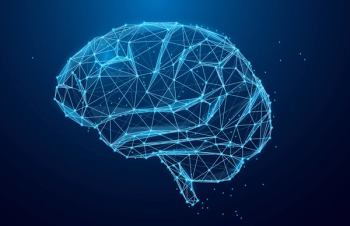
Anxiolytic Effects of Ketamine
Ketamine for anxiety? Researchers performed a systematic review and meta-analysis of ketamine’s anxiolytic effects.
CASE VIGNETTE
“Mrs Queen” is a 47-year-old African American female with a history of generalized anxiety disorder and severe, recurrent major depressive disorder, without psychotic features. She has had partial response, non-response, or tolerability issues with multiple classes of medications, including selective serotonin reuptake inhibitors, serotonin-norepinephrine reuptake inhibitors, tricyclic antidepressants, monoamine oxidase inhibitors, lithium, and second-generation antipsychotics.
She presents to the outpatient clinic to discuss a trial of ketamine. She asks whether treatment with ketamine could improve her anxiety in addition to her depression. As her psychiatrist, how would you respond?
The lifetime prevalence of anxiety disorders in US adults is 34%.1 Given the limitations of currently available treatments for treatment-resistant anxiety, there is a need for novel anxiolytic agents.2 In addition to its efficacy for depression, the NMDA receptor antagonist ketamine has emergency evidence of anxiolytic effects.3,4
However, previous reviews did not investigate the time course of ketamine’s action and included lower-quality evidence, which delimits conclusions. Furthermore, the transdiagnostic nature of anxiety symptoms suggests potential utility of ketamine in a range of clinical settings.
The Current Study
Hartland and colleagues5 conducted a systematic review and transdiagnostic meta-analysis of the effects of a single dose of ketamine on anxiety in randomized placebo-controlled trials (RCTs). The authors searched EMBASE, MEDLINE, PsycINFO, and the first 200 findings in Google Scholar in February 2022.
They included single- and double-blind RCTs of ketamine (any route of administration) in adults with any anxiety disorder or anxiety symptoms measured in the context of mood disorders, chronic pain, or palliative care, with a primary or secondary outcome relating to anxiety. Exclusion criteria were non-RCTs/non-blinded studies, use of ketamine at anesthetic doses or in context of surgery/anesthesia, ketamine administration in the context of a medical/surgical emergency, and studies in children/adolescents. Included studies were assessed for risk of bias.
Separate analyses were performed at 3 time points (acute at < 12 hours; subacute at 24 hours; and sustained at 7 to 14 days) Data were pooled across studies to conduct exploratory analyses of the correlation between post-ketamine anxiety scores, post-ketamine depression scores, and peak Clinician-Administered Dissociative States Scale (CADSS) scores.
The authors reviewed 309 publications in full. Approximately 14 RCTs were included in the qualitative systematic review, and 11 RCTs contributed quantitative data to the meta-analysis. This included 7 studies in posttraumatic stress disorder, 5 in mood disorders, 2 in other anxiety disorders, and 2 in chronic or cancer-related pain. Only 2 studies had a low risk of bias.
Seven studies measured acute (< 12 hours) effects of ketamine on anxiety. In the meta-analysis of 132 participants (n=69 ketamine, n=63 placebo), ketamine was associated with significant reduction in anxiety with a large effect size (standardized mean difference [SMD]=1.1, 95% CI 0.5-1.7), with non-significant between-study heterogeneity.
Ten studies measured subacute (24 hours) effects of ketamine on anxiety. In the meta-analysis of 357 participants (n=179 ketamine, n=178 placebo), ketamine was associated with significant reduction in anxiety with a small to medium effect size (SMD=0.4, 95% CI 0.2-0.7), with non-significant between-study heterogeneity.
Nine studies measured sustained (7-14 days) effects of ketamine on anxiety. In the meta-analysis of 307 participants (n=157 ketamine, n=150 placebo), ketamine was associated with significant reduction in anxiety with a small to medium effect size (SMD=0.4, 95% CI 0.2-0.7), with non-significant between-study heterogeneity.
For 7 studies at 24 hours and 6 studies at 7 to 14 days, the percentage improvements in anxiety and depression were significantly positively correlated (R2=0.62 and R2=0.77, respectively). There was no significant correlation between the peak level of dissociation and improvement in anxiety at either 24 hours or 7 to 14 days.
Study Conclusions
The investigators performed the first transdiagnostic systematic review and meta-analysis of the anxiolytic effects of a single dose of ketamine in RCTs. They found significant improvement in anxiety at <12 and 24 hours that was sustained for 7 to 14 days.
Study strengths included the transdiagnostic review and consideration of the correlation between changes in anxiety and depression. This is also the first review to consider the anxiolytic effects of ketamine across multiple time points.
Study limitations included the high risk of bias in most included studies, and the inclusion of parallel arm and crossover studies. Details regarding the meta-analysis procedure (eg, fixed- versus random-effects) and assessment of potential publication bias (eg, funnel plots, Egger’s test) were not provided.
The Bottom Line
There is evidence for rapid onset and sustained anxiolytic effects of single-dose ketamine. Further investigation, including into the effects of multiple doses of ketamine, appears warranted.
Dr Miller is a professor in the Department of Psychiatry and Health Behavior at Augusta University in Georgia. He is on the Editorial Board and serves as the schizophrenia section chief for Psychiatric Times®. The author reports that he receives research support from Augusta University, the National Institute of Mental Health, and the Stanley Medical Research Institute.
References
1. Bandelow B, Michaelis S.
2. Bystritsky A.
3. Glue P, Medlicott NJ, Harland S, et al.
4. Taylor JH, Landeros-Weisenberger A, Coughlin C, et al.
5. Hartland H, Mahdavi K, Jelen LA, et al.
Newsletter
Receive trusted psychiatric news, expert analysis, and clinical insights — subscribe today to support your practice and your patients.







